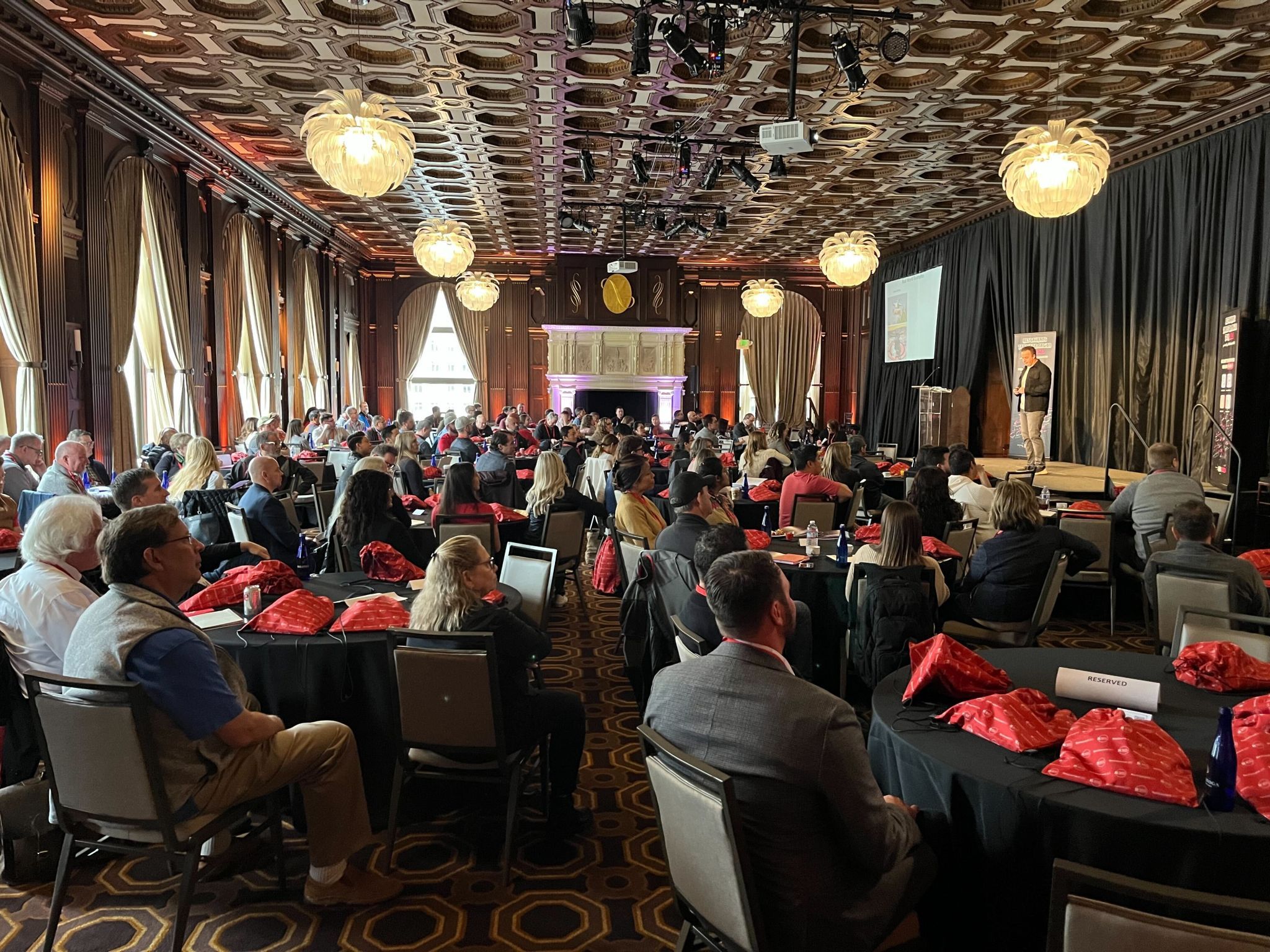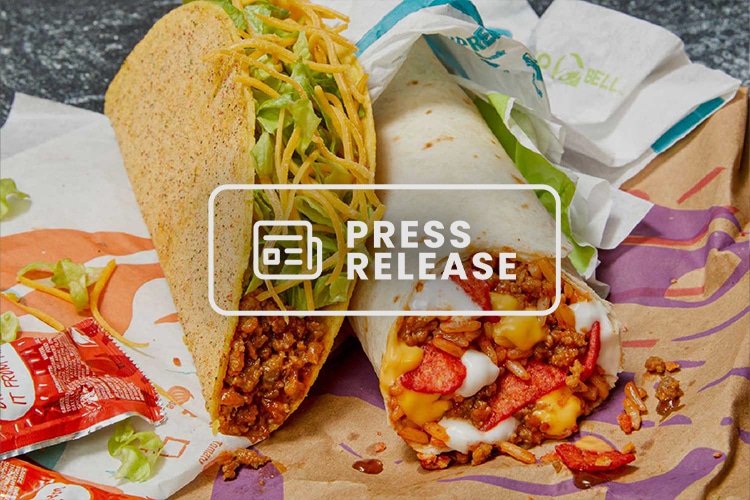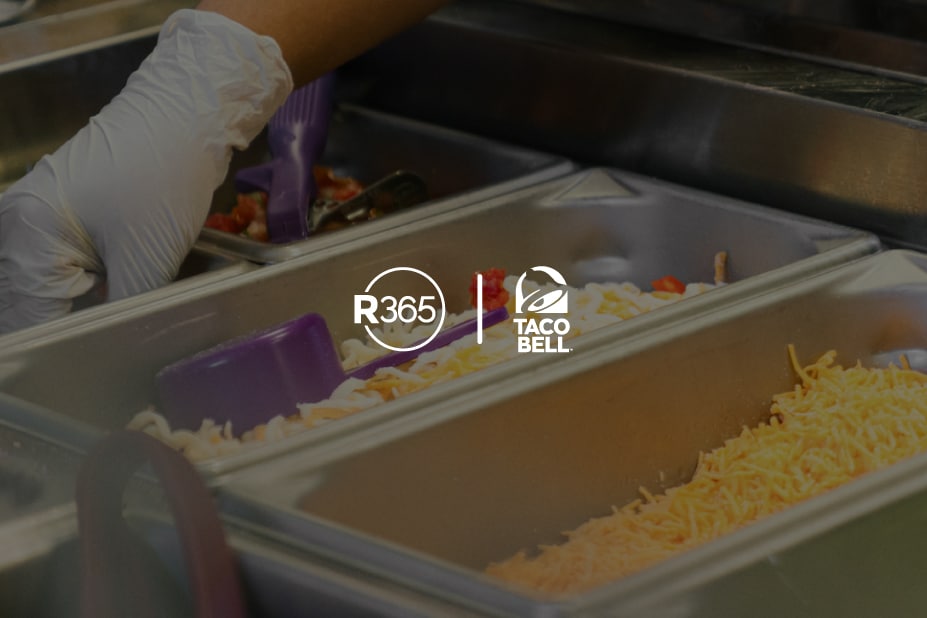Restaurant365 kicked off the second year of its rapidly expanding Restaurant Transformation Tour on March 9 at the historic Julia Morgan Ballroom in San Francisco. Nearly 200 restaurant leaders from groups of all sizes, regions, and service styles gathered to review what’s changed in the industry over the last year and share plans and best practices for growing in the coming years, no matter what the economy brings. Read on to learn about our biggest takeaways from the day and visit the Restaurant Transformation Tour hub for more information on when the band will play in a city near you.
Don’t Be a Zombie
R365 CEO Tony Smith kicked off the day with cordyceps, the so-called zombie fungus that is the basis of the hit video game-turned-HBO show “The Last of Us.” Given the relentless pace and demands of the restaurant industry “do we ever go through the motions? Do we ever let things control us?” Smith asked. He added that dictating rather than responding to situations requires systems that can make sense of what’s happened in the past to provide detailed guidance on how to manage in the coming days, weeks, months, and even years.
Restaurants Lead the Way
As the pandemic gripped the nation and the world, shutting down nearly every industry in its wake, no industry shed more jobs than restaurants and hospitality. In the years since, no industry has also contributed more to the nation’s economic recovery. In January, the U.S. added more than 500,000 jobs to the workforce, and 100,000 of those, Smith said, were in hospitality. “So when politicians get up, and they say, “I’ve done it, I made the economy better, you say, Restaurants made the economy better,” he added, “that’s who’s doing it.”
Turn Your Restaurant Managers into Operators
In an environment where it’s more challenging than ever to combine incredible guest experiences with consistent growth, Restaurant365 Co-Founder Morgan Harris emphasized the need for restaurant companies to expand managers’ vision and roles from narrower day-to-day operations to longer-term profitability. Managers without that guidance tend to think short-term, focus on working with limitations, see the team as only employees, and are often reactionary. Those with the operator mindset, however, see the opportunity in every situation, focus on the long term, and look to expand the skills and responsibilities of their team.
Some leading restaurant organizations, Harris added, are driving that by restructuring the manager’s role. “Some companies are (even renaming managers restaurant operating partners) giving them financial skin in the game, sweat equity, they’re letting them buy-in (to the company), and their compensation is deeply tied to the performance of the store,” Harris said.
Small Changes, Big Results
Sometimes, that shift from a manager to an operator can be subtle. Kevin O’Bold, VP of Finance for Texas Roadhouse franchisee Ultra Steak, explained how one location’s manager tapped into the community’s soul to unite their team and serve guests better.
O’Bold, only a couple of weeks ago, snapped a picture of a sign near the kitchen entrance of their location in Mission Walk, Indiana, that said, “Eat Like a Champion.” For those that don’t know, Mission Walk is next door to South Bend, Indiana, and Notre Dame University, where the football team leaves the locker room on the way to the field under a sign that reads “Play Like a Champion.”
“He knew his market; he knew his employees,” O’Bold said. “It’s right where they hold meetings before each shift; it gets everyone pumped up, gets a lot of energy going, and really that’s the culture that we want.”
Help Them Win with Data
A big part of turning managers into operators is ensuring they have and use reliable, real-time, actionable data that helps those leaders look critically at the past and make data-driven decisions about what to do in the future. Of course, the most important thing for a manager is to be out on the floor and amongst their teams, leading, improving guests’ experiences, and driving growth. They don’t have time to, and shouldn’t, be in their offices crunching the numbers. The solution is a cloud-based, holistic system allowing above-store operators to consistently provide managers with the data they need.
“Report subscriptions are a potent tool for your managers to get the data they need without going into a system,” said R365 Customer Success Manager and Solutions Architect Marc Cohen. “You want them looking at a flash report every morning, so you need to set it and forget it, so you know the data is always right there for them to look at.”
Rethinking Restaurants
With so much change in the restaurant industry in recent years, stable systems like ownership and workdays and week are even shifting, potentially for the greater good.
Last February, we converted the company to employee ownership,” said Jill Richter, financial director of Edible Eats. “The founders sold the company to the employees… that’s been a game changer for us. All of a sudden, you can see people’s brains shift. They’re not working for the owner anymore, they’re working for themselves, and it’s their own LLC. And now they’re like, wait, that guy should be off the clock, right? You just here, you (messing) up the model.”
At Northern California’s Hopmunk, VP of Operations Javier Silva said they’re doing away with 12-to-14-hour manager days, limiting them to eight, and looking for ways to streamline tasks so it can all get done in that time. They’ve even started experimenting with a four-day employee work week, with longer daily shifts.
“Sometimes you can’t pay people what they’re worth,” Silva said. “So you have to be able to (provide them the opportunity for growth) and the ability to spend the right amount of time with their families, to be able to take a vacation. Vacation is meant to be taken, not accumulated.”
The Restaurant of the Future
While so much attention has been on front-of-house technologies like cooking robots, drone deliveries, augmented reality menus, and holographic servers, R365 CEO Tony Smith added another layer onto the restaurant of the future: an integrated, automated back-of-house:
“AI creates highly accurate sales forecasts linked to marketing to directly target customers in multiple, individualized ways. Menu engineering tells you what to do with your menu based on purchasing trends nationwide. That sales forecast informs purchase orders based on item-level forecasts. Prices are automatically monitored, so when your system creates a purchase order, it chooses the vendor for you based on real-time price and sends it out seamlessly.”
It doesn’t end there.
“That vendor invoice returns electronically, the price is automatically checked against contract, and the vendor is automatically paid on your timeline. Teams can use their devices to take inventory which is immediately fed into the system to enable fast, accurate reporting. Staff schedules are suggested based on forecasts and automatically sent to employees’ mobile devices, where they can request and swap shifts. They’re paid when and how they want, all within the same system. Overtime is monitored in real-time, and managers are alerted when thresholds are reached. Managers use the same app when they start each shift to see their most important tasks and can seamlessly communicate important information with other managers across shifts and locations.”
Finally, Smith added, “data is served up to managers and leaders proactively, telling what they should be looking into and adjusting at their store while also providing real-time P&L and performance to budget.”
All that’s left is to focus on the guest.



